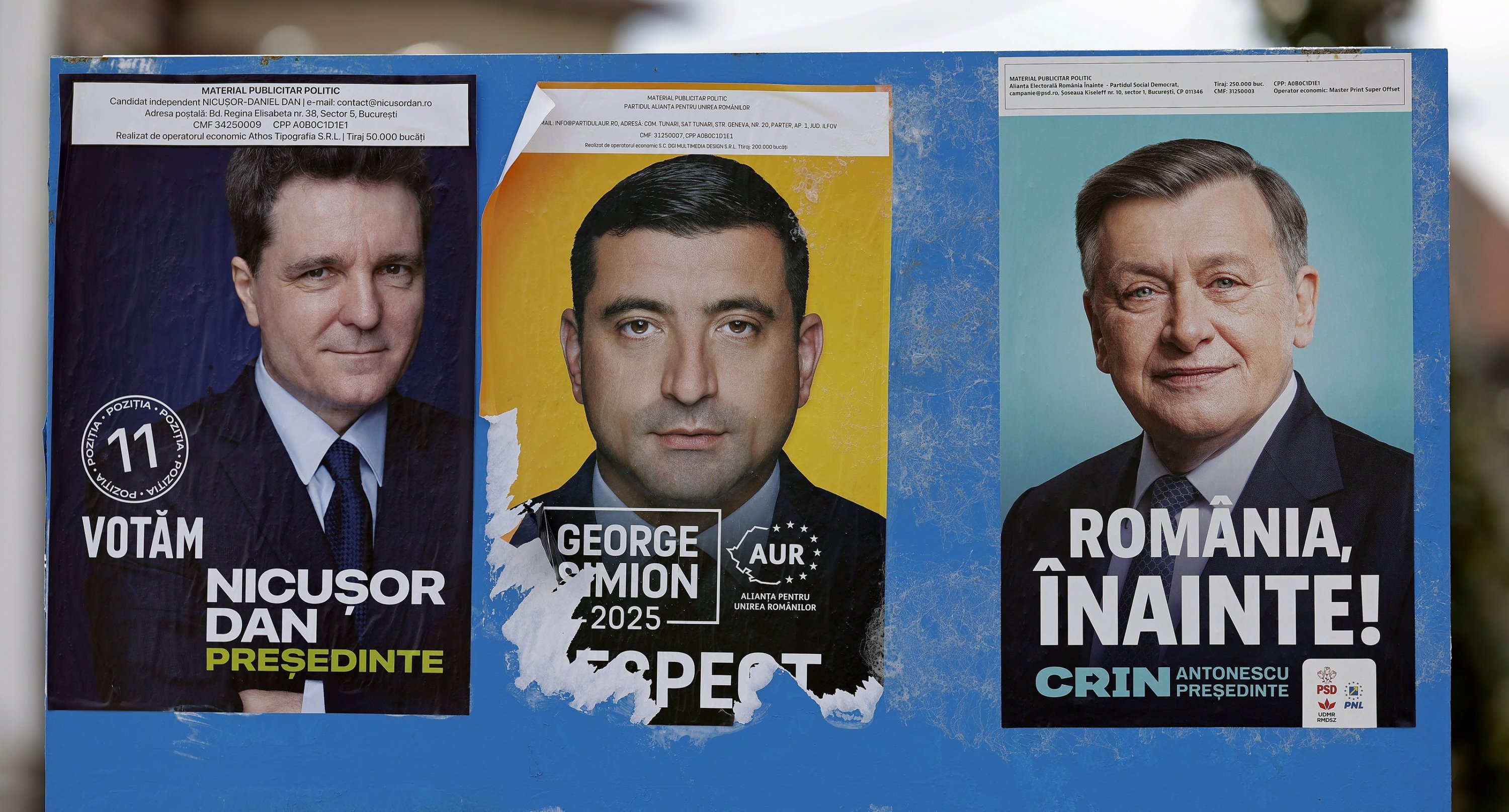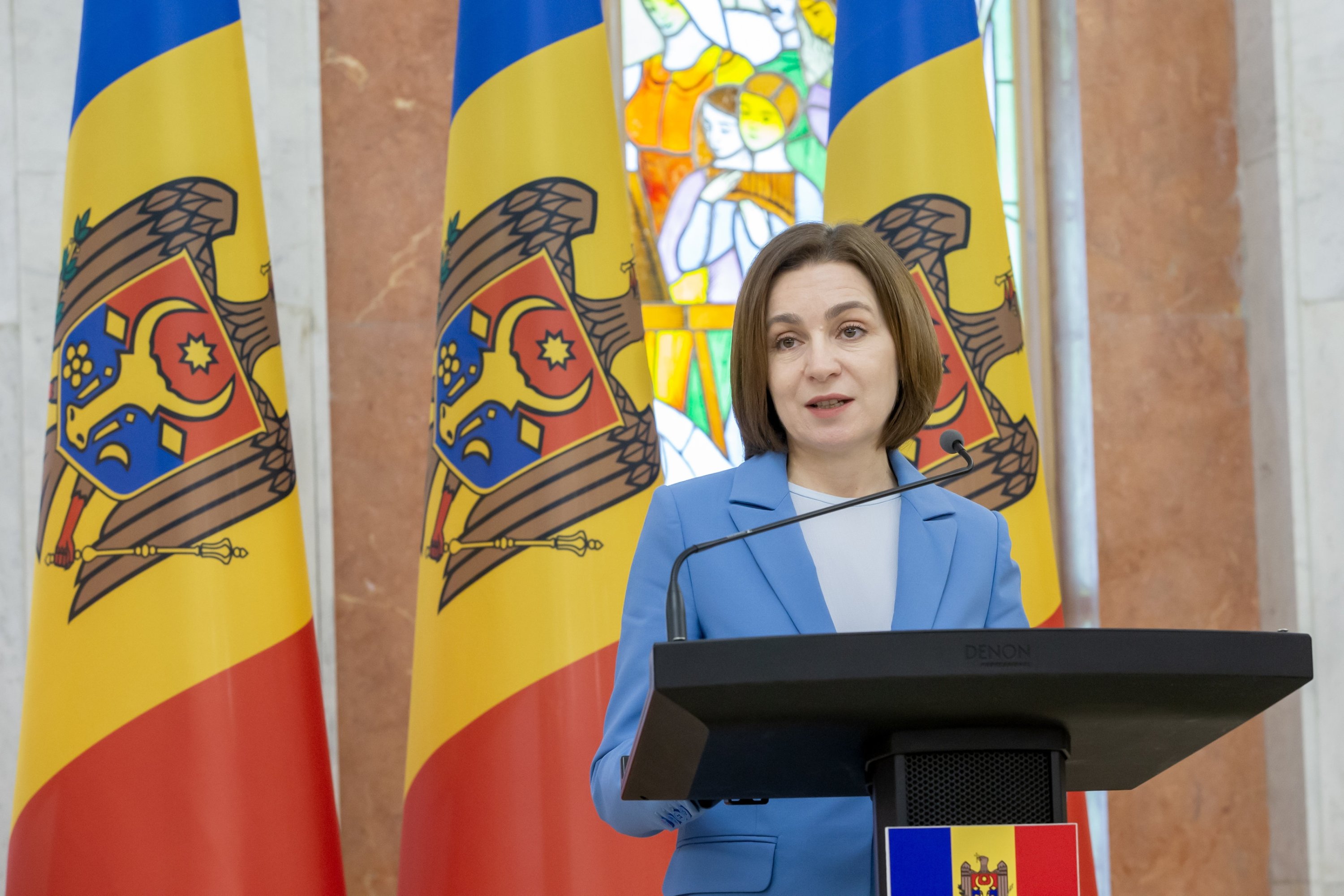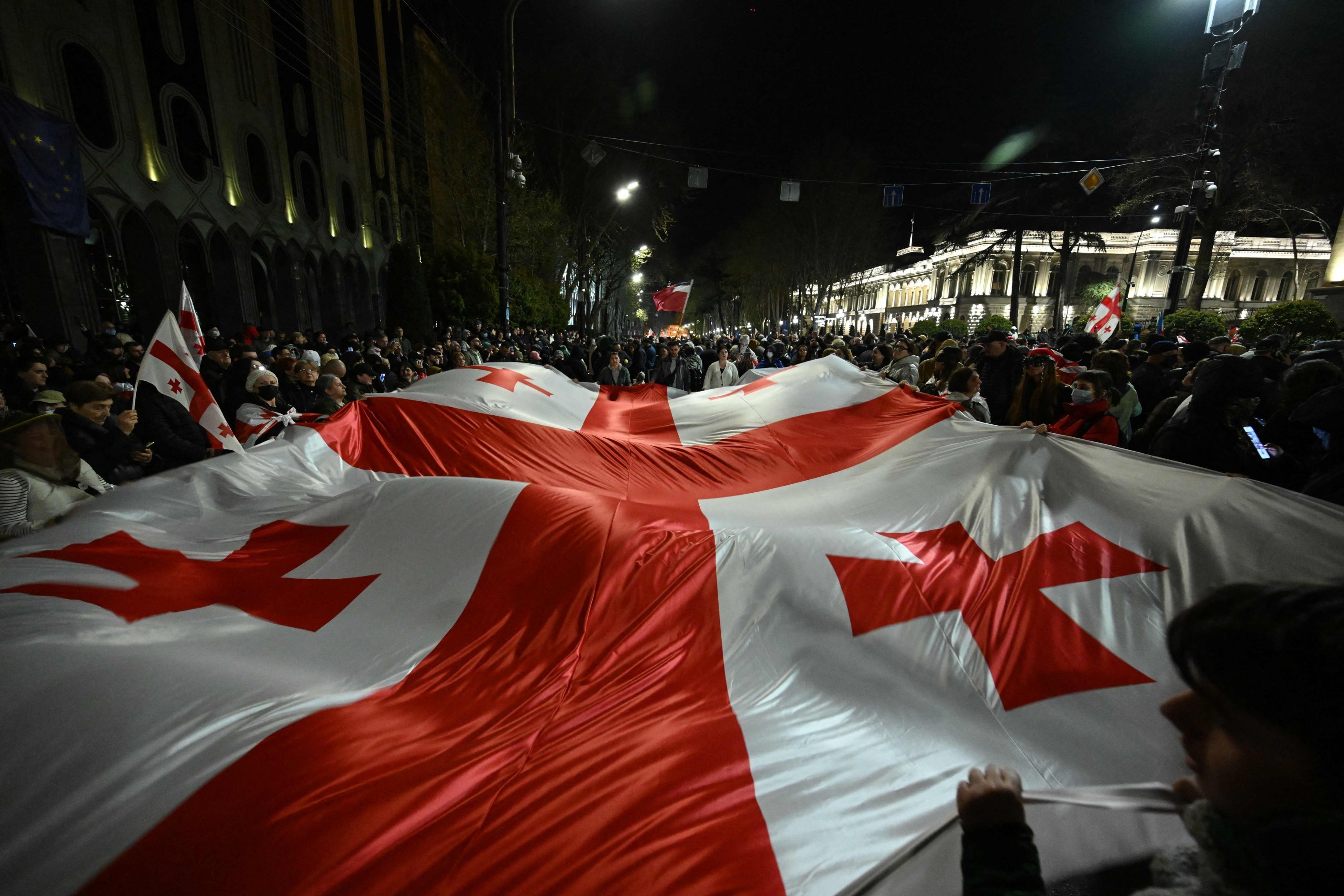© Turkuvaz Haberleşme ve Yayıncılık 2026
Relations between the United States and the Russian Federation have fluctuated since the Cold War, with tensions escalating in recent years due to the Ukraine crisis, cybersecurity issues, and regional influence struggles. As of April 2025, the dynamics between these global powers hold significant implications for Eastern Europe and Black Sea countries, such as Romania, Georgia and Moldova.
These countries, whose geopolitical positions have fostered complex relationships with the Russian Federation, gained independence and embarked on distinct paths within the international system following the dissolution of the Soviet Union. However, Russia’s persistent efforts to maintain and expand its regional influence have profoundly shaped their domestic politics and foreign relations.
Given their geopolitical positions, these nations are pivotal to both the U.S.’ strategic objectives within NATO and the Western alliance and Russia’s efforts to preserve influence in its near abroad. The most recent general elections, namely Romania’s 2024 presidential election, Georgia’s 2024 parliamentary election and Moldova’s 2024 presidential election, and societies' attitudes before and after the elections serve as critical indicators for understanding their stances toward Russia.
As a member of the European Union and NATO, Romania has traditionally pursued a Western-oriented foreign policy. Russia’s 2022 invasion of Ukraine reinforced Romania’s security concerns and solidified its cautious stance toward Moscow. The 2024 presidential election marked a significant juncture in this context. The first round of the election took place on Nov. 24, 2024, but as no candidate secured an absolute majority, a second round was scheduled. However, on Dec. 6, 2024, Romania’s Constitutional Court annulled the results and ordered a restart of the process – a decision widely linked to allegations of Russian interference.
Before the election, Romania’s position toward Russia remained largely consistent. The government supported Ukraine and endorsed EU sanctions against Russia. Yet, the campaign of Călin Georgescu, an independent far-right candidate with pro-Moscow leanings, unexpectedly gained traction. Leveraging the social media platform TikTok to bypass traditional media, Georgescu garnered significant support, particularly among younger voters. His 22.9% vote share in the first round surprised observers and fueled suspicions of Russian meddling. The Romanian Supreme Council for National Defense (CSAT) reported evidence of cyberattacks during the election, attributing these actions to “state and nonstate actors, primarily the Russian Federation.”
Following the annulment, Romania’s stance toward Russia hardened further. The Constitutional Court’s ruling was informed by intelligence suggesting Russian backing of Georgescu’s campaign through social media manipulation, intensifying perceptions of interference in Romania’s democratic process. As of May 2025, new elections are planned, and Georgescu’s candidacy has been rejected by the Constitutional Court due to irregularities in campaign financing documentation. These developments underscore Romania’s increasingly vigilant and resolute posture toward Russia. The government has reaffirmed its commitment to deepening integration with NATO and the EU, continuing to designate Russia as a security threat.
As an EU and NATO member, Romania is directly impacted by U.S.-Russian tensions. Its Black Sea coast positions it as a key player in NATO’s strategy to reinforce its eastern flank against Russia’s actions in Ukraine. The U.S. has recently expanded its military presence in Romania, making it a more prominent target in Russia’s view. In March 2025, the U.S. decided to deploy additional troops and missile defense systems to NATO bases in Romania, a move interpreted as a counter to Russia’s Black Sea military activities.
Postelection, Romania’s stance toward Russia may harden further with U.S. backing. The 2024 election annulment and allegations of Russian interference have deepened distrust of Moscow. Joint U.S.-Romanian cybersecurity exercises and heightened preparedness against Russian threats reflect this shift, though it may expose Romania to direct or indirect Russian retaliation. Economically, U.S.-Russia tensions offer opportunities – such as increased U.S. investment in energy and defense – but also risks, including Russian threats to Black Sea trade routes or hybrid attacks on energy infrastructure. Romania is likely to bolster its NATO role while pursuing balanced diplomacy to avoid direct confrontation with Russia.
Romania continues to assume a strategic role on NATO’s eastern flank. This diplomatic retaliation reflects Russia’s perception of Romania as an extension of the Western alliance and underscores heightened distrust following the annulment of the 2024 elections. Romania’s stance is becoming increasingly resolute against Russia while advancing deeper cooperation with the United States and NATO. However, this trajectory may render Romania more vulnerable to potential hybrid threats from Russia in the Black Sea region.

Moldova’s relations with Moscow have long been sensitive due to Russia-supported separatist movements in Transnistria. The presidential election and concurrent EU membership referendum on Oct. 20, 2024, represented a pivotal test for Moldova’s future direction. In the lead-up to the election, incumbent President Maia Sandu championed EU integration and accused Russia of interfering in Moldova’s internal affairs. Moldovan police alleged that Moscow campaigned against the referendum and bribed voters.
Preelection polls showed Sandu in the lead, though pro-Russian groups mounted vigorous campaigns. Sandu opposed Russia’s invasion of Ukraine and pursued closer ties with the West while upholding Moldova’s neutrality. Moldovan society remains divided, with some segments sympathetic to Russia due to Orthodox Christian ties and Soviet history, while younger and urban voters favor the EU. The election was thus seen as a crossroads for the country.
Sandu won reelection, and the EU referendum passed with a narrow 50.46% majority. Postelection, her stance toward Russia grew more assertive. The Moldovan government accused Russia of electoral interference and sought increased support from the EU. In her victory speech, Sandu emphasized that “despite Russia’s efforts to destabilize Moldova, the people chose Europe.” As of March 2025, Moldova’s relations with Russia remain strained, though a complete break appears unlikely without resolving the Transnistria issue. Moldova’s resistance to Russia is closely tied to Western support, the continuity of which remains crucial.
Positioned between Ukraine and Romania with no coastline, Moldova is highly vulnerable to U.S.-Russian competition. Russia’s historical influence, notably through Transnistria’s separatist movements and military presence, contrasts with the current government’s pro-EU and pro-Western orientation under President Sandu. Since Russia’s 2022 invasion of Ukraine, U.S. diplomatic and economic support to Moldova has increased, including financial aid packages to enhance energy independence and reduce reliance on Russia. In March 2025, the U.S. Department of State reportedly announced a new aid package targeting infrastructure and cybersecurity capacity. Russia has responded sharply, labeling U.S. activities in Moldova as “provocative” and signaling potential escalation via its Transnistria presence. Moldova’s societal divide – between pro-Russian and pro-EU factions – suggests that sustaining neutrality amid U.S.-Russia rivalry may prove challenging, risking regional instability.

Georgia has maintained tense relations with Moscow since the 2008 Russian-Georgian War and the subsequent de facto Russian control over Abkhazia and South Ossetia. The parliamentary election held on Oct. 26, 2024, brought to the forefront the question of whether Georgia would pursue integration with Europe or rapprochement with Russia. The ruling Georgian Dream Party emphasized peace in its preelection campaign, accusing the opposition of risking a Ukraine-like conflict. Party leader Bidzina Ivanishvili advocated for a “respectful relationship” with Russia while issuing statements condemning concerns about Russian interference in Georgia’s internal political processes.
Prior to the election, Georgian Dream adopted a pragmatic approach toward Russia, deepening economic ties while offering limited diplomatic support to Ukraine and occasionally clashing with Western partners. The opposition criticized the party for conceding too much to Moscow, advocating instead for EU and NATO membership. Public opinion polls indicated that a majority of Georgians favored a Western-oriented foreign policy and viewed Russia as the primary threat. This polarization created an unpredictable electoral climate.
The election resulted in a victory for Georgian Dream, though the opposition alleged irregularities. Postelection, Georgia’s stance toward Russia showed no significant shift. In his victory speech, Ivanishvili reiterated the goal of maintaining a “balanced relationship” with Russia while preserving ties with the West. However, the passage of a Russia-backed “foreign agents” law in May 2024 heightened concerns about Moscow’s growing influence. As of March 2025, Georgia’s relations with Russia reflect a delicate balance between pragmatism and caution, a position echoed by President Mikheil Kavelashvili.
Georgia’s strained relations with Moscow, entrenched since the 2008 war and Russia’s recognition of Abkhazia and South Ossetia, are influenced by U.S.-Russian dynamics. Georgian Dream’s 2024 election victory has sustained a policy of balancing relations with Russia and the West. Bidzina Ivanishvili has pledged to maintain economic ties with Russia while preserving Western connections. However, the opposition’s criticism of perceived concessions to Moscow and public support for EU and NATO membership highlight internal divisions. As of March 2025, U.S. military support to Georgia continues broadly, though tensions arose after the 2024 “foreign agents” law prompted the U.S. to suspend $95 million in aid, signaling that support hinges on democratic standards. Economically, Georgia remains dependent on Russian trade despite U.S. backing, making Russian sanctions a potential threat to its fragile economy. Georgia may persist in a pragmatic stance amid U.S.-Russian tensions, though its long-term sustainability is uncertain.

The pre- and postelection attitudes of Romania, Moldova and Georgia toward Russia reveal both shared and distinct dynamics. All three nations are directly affected by Russia’s regional influence due to their geopolitical positions. Romania, bolstered by EU and NATO membership, has adopted a clear opposition to Russia, strengthening its stance postelection against Moscow’s interference. Moldova, under Sandu’s leadership, has distanced itself from Russia, though internal divisions and the Transnistria issue pose implementation challenges. Georgia has pursued a pragmatic approach, preserving economic ties with Russia while maintaining Western relations.
Electoral processes in these countries highlight Russia’s influence in varied forms – cyber interference allegations in Romania, bribery accusations in Moldova and the “foreign agents” law debate in Georgia, – reinforcing perceptions of Moscow’s efforts to penetrate domestic politics. Nevertheless, public preference for a Western-oriented future is evident across all three, suggesting that Russia’s influence-building attempts may backfire over time.
Recent U.S.-Russia developments will impact Romania, Moldova and Georgia differently, yet common themes emerge. In security, U.S. support via NATO and bilateral agreements aims to curb Russia’s regional dominance, though this may provoke hybrid responses from Moscow, potentially destabilizing the region. Economically, U.S. investments could reduce reliance on Russia, but Russian retaliatory measures may pose short-term challenges. Politically, U.S.-Russia rivalry could deepen polarization between pro-Western and pro-Russian factions in these countries.
The attitudes of Romania, Moldova and Georgia toward Russia before and after their latest elections have been shaped by domestic dynamics and international pressures. These nations navigate a complex landscape of balancing relations with Russia, addressing security concerns and pursuing European integration. The role of the international community will be decisive in ensuring their stability and democratic development. Tensions in U.S.-Russian relations impact these three countries in distinct ways. Romania positions itself as a strategic stronghold within NATO, whereas Moldova and Georgia navigate a more delicate balance. Regional initiatives, such as energy projects, hold the potential to diminish Russia’s influence, yet Moscow’s hybrid responses pose risks for these nations.
